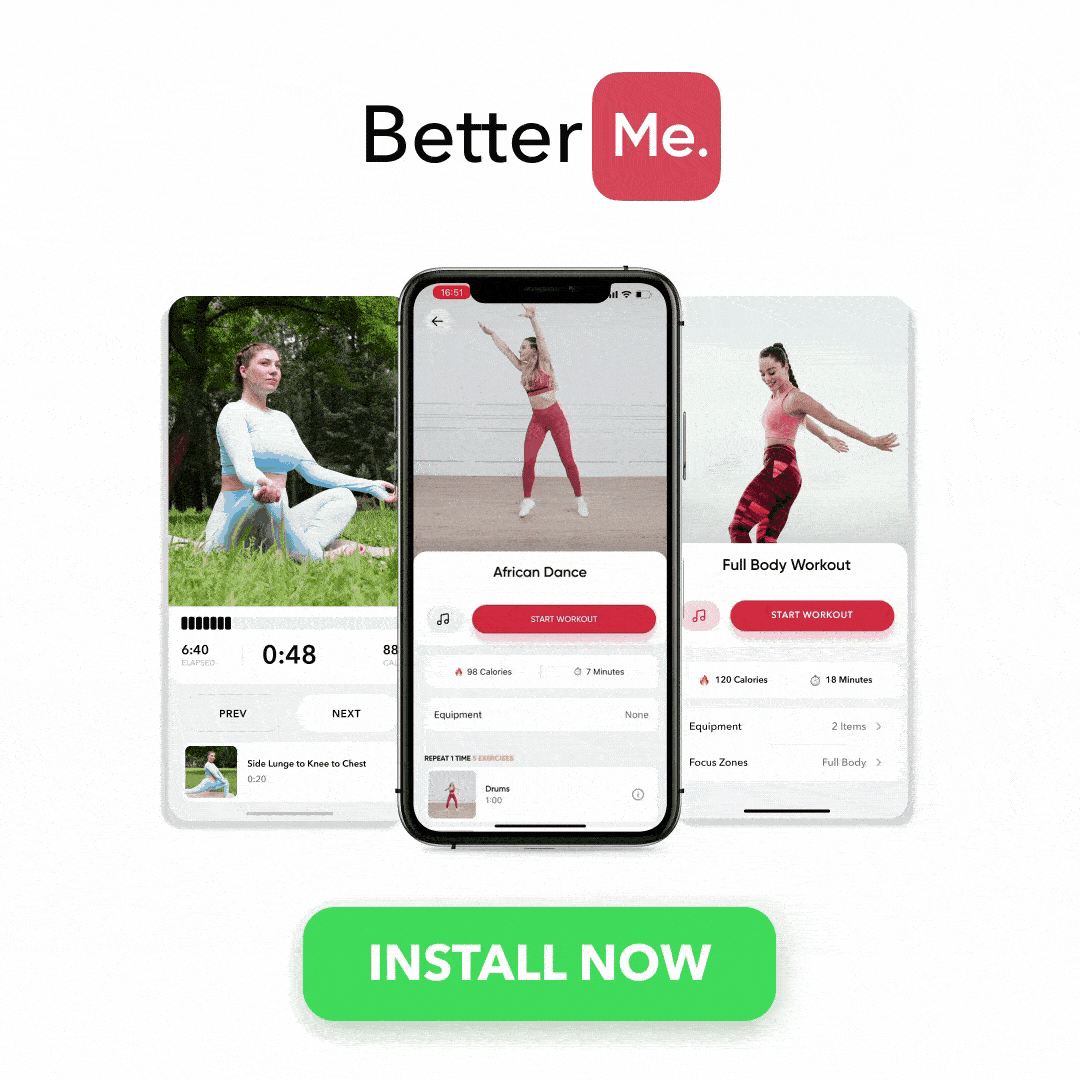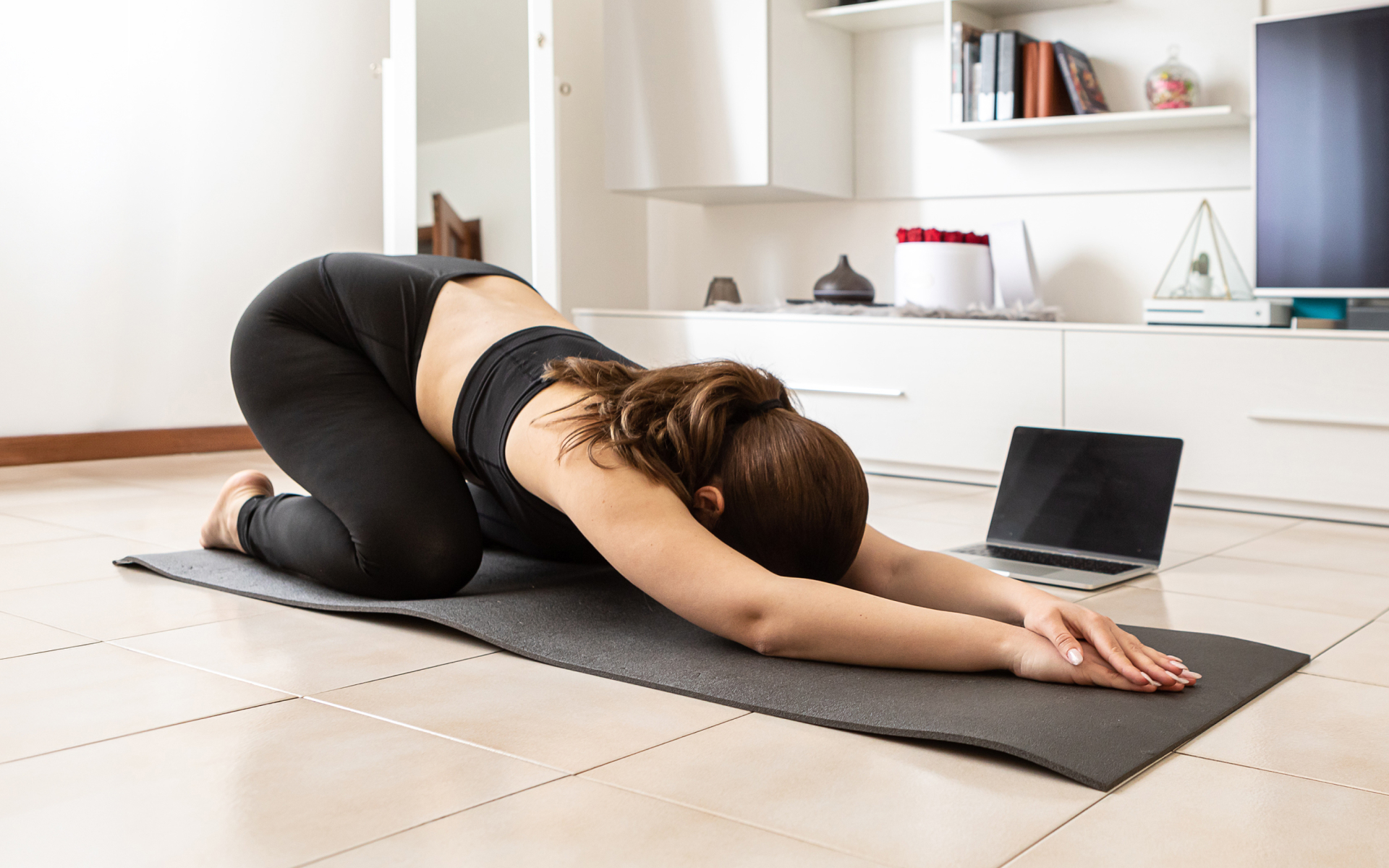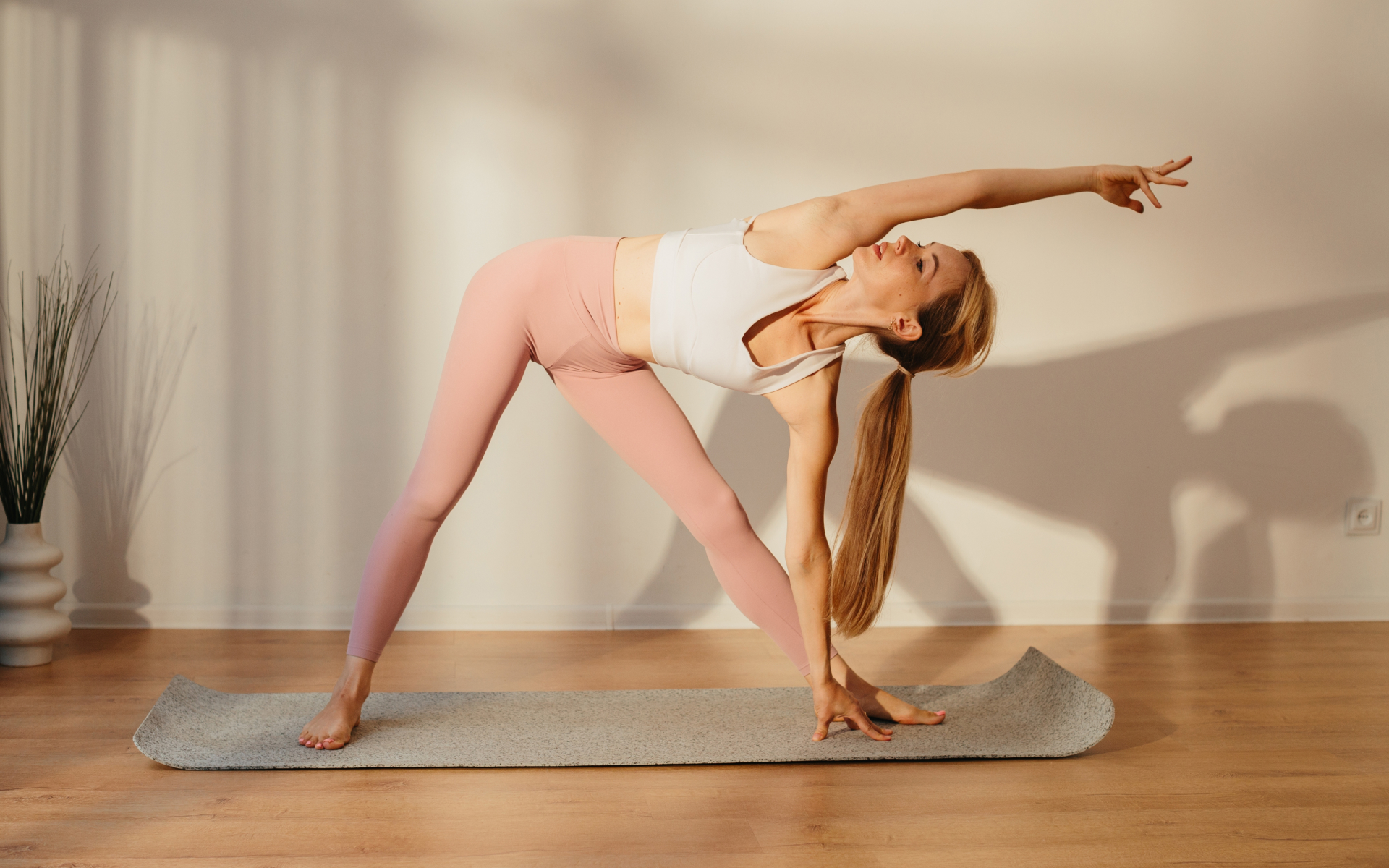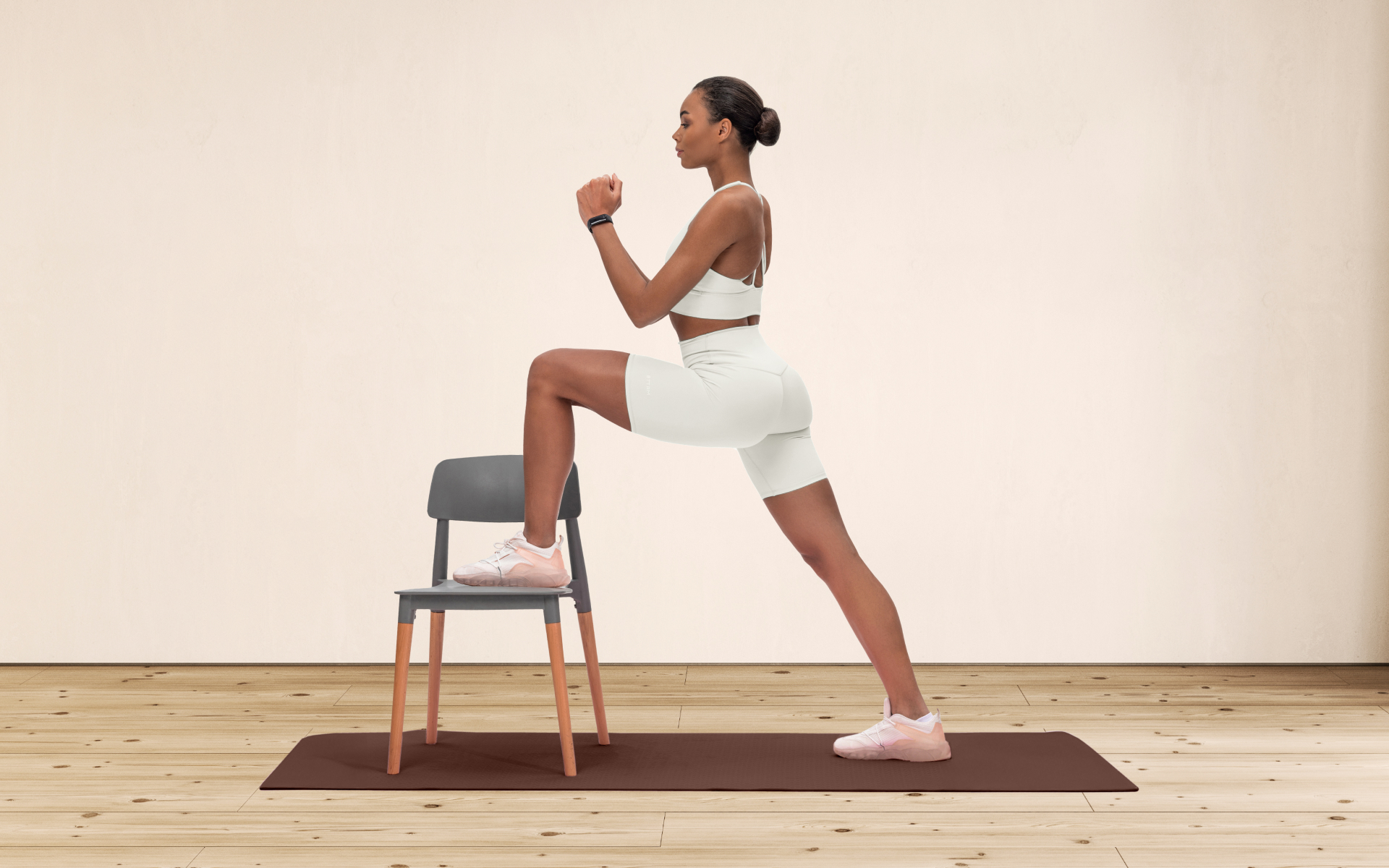No doubt, running is one of the easiest exercises ever – you don’t need any special equipment or any particular skill to go jogging or running. Inasmuch as this statement is true, this go-to exercise also has some downsides, especially when overdone. If you are a beginner at working out, one of the pieces of ‘advice’ that you may have come across involves running every day. But isn’t this too much? What are the benefits of running every day? And is pounding the pavement every single day really worth the risks involved?
According to the Centers for Disease Control and Prevention (CDC), the current Physical Activity Guidelines for Americans are (15):
- 150 minutes of moderate-intensity exercise per week. Mayo Clinic defines ‘moderate-intensity exercise’ as an activity that feels somewhat hard. Clues that your exercise intensity is at moderate level include a heightened rate of breathing (but you are not out of breath), a light sweat after about ten minutes of activity, and ability to carry on a conversation (but you can’t sing). (11)
- 75 minutes of high-intensity exercise per week. High-intensity exercise feels challenging. You will know that your exercise intensity is at a vigorous level if: your breathing is deep and rapid, you develop a sweat after only a few minutes of activity, and you can’t say more than a few words without pausing for breath.
Such physical activity has a myriad of benefits, among which is reducing the risk of cardiovascular diseases and cancer.
For many, going for a run is one of the easiest ways of achieving the recommended hours of physical activity. And judging from the benefits of running, this is a wise choice.
Are there any benefits of running 2 miles every day? Let’s take a look at the general benefits of running every day.
Read More: Running On Leg Day: Can It Impede Your Progress?
Health Benefits Of Running Every Day
Before we get into the nitty-gritty of whether you have to run every day to reap the benefits of the exercise, let’s take a look at some of the benefits of good old running.
-
Running Can Boost Your Mood
Undoubtedly, exercise can instantly boost your mood (4). In fact, some people use exercise as an antidepressant (however, this should not be used in place of a certified doctor’s prescription). (10)
When you run, your brain releases two powerful ‘feel-good’ chemicals, endorphins and endocannabinoids, which help to boost your mood.
-
It Helps With Anxiety Disorder And Panic Attacks
In one study, scientists used the carbon-dioxide challenge test to study the connection between anxiety sensitivity and physical activity. (28)
The scientists found that more physically active people were less likely to panic in fearful situations even if they had anxiety sensitivity.
-
It Helps In The Regulation Of Blood Pressure
An analysis of various studies concluded that aerobic exercise can be a non-pharmacological (drug-free) treatment for hypertensive people. (23)
-
Running Improves Insulin Sensitivity
Running helps lower blood sugar. While running, your blood sugar reduces as your muscles will use the glucose or energy while running.
When it comes to weight loss, progress is made by inches, not miles, so it’s much harder to track and a lot easier to give up. BetterMe app is your personal trainer, nutritionist and support system all in one. Start using our app to stay on track and hold yourself accountable!
-
Boosts Your Metabolism
Thirty minutes of running combined with warm-ups and stretching (45 minutes in total) may boost your metabolism for the next 14 hours.
In a study of ten male subjects (age = 22-33 yr), a 45-min exercise bout resulted in a net energy expenditure of 519 ± 60.9 kcal (2).
For 14 hours after the exercise, their energy expenditure was increased 190 ± 71.4 kcal compared with the rest day (P < 0.001).
The study concluded that the magnitude and duration of increased energy expenditure after a 45-minute bout of vigorous exercise might have implications for weight loss and management.
This is one of the myriads of benefits of running every day for 30 minutes that may interest those looking to get in shape and increase their calorie expenditure.
-
Increases Workplace Productivity
The benefits of running in the morning every day were evident in one study which found that employees were happier and more efficient at the workplace on days when they exercised. (13)
The improvement in mood or performance, however, was not observed on days when they did not exercise.
-
Boosts Self-Esteem In Children Or Young People
The benefits of running every day may also be enjoyed by children and young people alike. A study suggests that running or exercise can increase self-esteem in children or young people. (12)
-
Running May Help You Process Information Faster
A study looked at different recreational activities and their impact after a learning period. (22)
The group that was made to run performed better than any other group in the study.
The study concluded that running increases cortisol levels and, performed immediately after a learning period, facilitates memorization of neutral information.
In contrast, playing a violent computer game tends to impair memorization.
-
Increases Cortical Activity During Working Memory
Aerobic exercise, like running, has been proven to activate the brain area that is responsible for executive functions like attention control, working memory, or cognitive flexibility (1).
As such, running will help you work towards achieving your goals without losing focus.
-
Improves The Quality Of Sleep
Running ensures deep unbroken sleep. Researchers in one study observed a group of healthy adolescents who ran for 30 minutes at a moderate-intensity pace every morning for three weeks. Their sleep, mood, and concentration ability during the day tested better than a control group of non-runners. (6)
-
Helps To Kick Out Bad Habits Or Addictions
Running may help you to kick out bad habits such as smoking, excessive drinking, and using recreational drugs.
After just a few weeks of running regularly, you will feel that the cravings are not as strong.
-
Reduces Fatigue (Ironically)
A 6-week trial of young adults who reported a persistent feeling of tiredness found improvements in energy levels and a drop in fatigue when they ran (3).
-
Improves Free Testosterone Levels In Men
Running, especially intensive interval running workouts can significantly improve free testosterone levels in men. (26) Testosterone is responsible for high libidos and sex drive in men.
-
Lowers Cholesterol Levels
Running also lowers cholesterol levels in the body, which in turn reduces the risk of heart attacks and strokes. (21)
-
Reduces The Risk Of Cardiovascular Disease
Running even five to ten minutes a day at slow speeds is associated with a drastically reduced risk of dying from cardiovascular disease. (8)
-
Strengthens Your Joints
A Medicine & Science in Sports & Exercise study of nearly 75,000 runners and walkers found that running actually doesn’t up the risk of osteoarthritis—even for people who run 26.2 miles regularly. (7)
In fact, the study showed that runners were half as likely to suffer from knee osteoarthritis compared to walkers.
Every time you go on a run, you stress your bones and cartilage, just like your muscles, causing them to spring back stronger.
-
Burn Calories
How many calories do you burn running a mile? The average 150-pound person will burn about 12.2 calories per minute running a 10-minute mile.
-
May Be An Effective Alternative To Treating Depression
ACSM’s Health and Fitness Journal study showed that physical activity acts as an effective alternative to treating depression. (17)
Combining running with a pre- or post-workout meditation session will reap substantial benefits, as stated in the research published in the journal Translational Psychiatry. (20)
-
Running Could Help You Live Longer
Runners have a 25 to 40 percent reduced risk of premature mortality and live about three years longer than non-runners, according to a study published in Progress in Cardiovascular Diseases. (24)
In the study, runners who also regularly took up other aerobic physical activities, such as cycling, swimming, walking, basketball, and racquet sports, had the greatest mortality benefit, with a 43 percent lower risk of death.
For both sexes, mortality from respiratory diseases, cancer, and stroke is insignificantly lower for joggers compared with nonjoggers.
Read More: What Is Anaerobic Exercise: Pressing Reset On Sedentary Lifestyle
Should You Really Run Every Day?
While the benefits of running every day are quite enticing, you should actually think twice before embarking on a 7-day a week running routine.
The high-impact nature of running puts a lot of stress on your body, which is why you should think twice before choosing to perform this exercise every day.
For one, running every day without incorporating recovery days can lead to overuse injuries such as shin splints and stress fractures (5).
Overuse injuries result from taking on too much physical activity too fast and not allowing the body to adjust. They may also be caused by technique errors, such as running with poor form or overloading certain muscles.
Other overuse injuries include:
- Blisters: These are caused by the foot sliding or rubbing inside the shoe
- Shin pain: Pain and inflammation in the muscles and tendons that run the length of the shin.
- Soft tissue injuries: Examples include a pulled muscle or ligament sprain.
- Skin injuries: Such as sunburn and bruises. Falling over while running or jogging can also cause cuts and abrasions.
Another reason why you probably shouldn’t run every day is tied to a study of 40 elite athletes. (9)
After studying the athletes (who were training for endurance running events) researchers found evidence that some athletes who take part in extreme endurance exercises such as marathons, endurance triathlons, alpine cycling or ultra triathlons may incur damage to the right ventricles of their hearts – one of the four chambers in the heart involved in pumping blood around the body.
If this does not convince you that you probably should not run every day, then maybe this simple fact will: you may be able to experience the same benefits highlighted above from 30 minutes of other daily activity, too, such as walking, cycling, swimming, or yoga.
Is running bad for you? No, absolutely not. But, like any other exercise, you need to run in moderation and ensure that you are not causing more harm than good.
If you wish to free yourself from all the extra pounds that have been weighting you down for way too long, start using the BetterMe app and overhaul your entire life!
Factors That Can Increase Your Risk Of Injury While Running
Some of the factors that can increase your risk of injury while running or jogging include:
- Overtraining. Running beyond your current fitness level can strain your muscles, tendons, and ligaments.
- Incorrect technique. A poor running style can increase the risk of injuries.
- Running with incorrect shoes. The wrong type of shoe can increase the risk of various injuries, including blisters and shin pain.
- Incorrect clothing. Wearing the wrong clothes can also contribute to overheating, sunburn, or cold injuries.
- Running on hard surfaces. The impact of running on hard surfaces, such as bitumen, can cause injuries, including shin pain and stress fractures.
- Other environmental factors. These may include running surfaces that are too loose and unstable (for example, sand), polluted air, environmental obstacles such as low-hanging tree branches, or sunburn.
How To Improve Your Running Experience And Avoid Injuries
- Always warm up before running. Include plenty of slow and sustained stretches, and make sure you thoroughly stretch the muscles in your thighs and calves.
- Cool down after running. Also, incorporate stretches into your cool-down routine.
- Drink plenty of water before, during, and after your run. You can lose between 6 and 12 ounces of fluid for every 20 minutes of running. Drink 10 to 15 ounces of fluid 10 to 15 minutes before running and every 20 to 30 minutes along your route. Weigh yourself before and after a run. For every pound lost, drink one pint of fluid.
- Do not push too hard beyond your current fitness level. Plan to gradually increase how long and how often you run over a few weeks or even months.
- Start slowly at a pace at which you can have a conversation without breathlessness. No matter how eager you are to get in shape, remember that slow and steady wins the race!
- Avoid running during the hottest part of the day in summer. Plan to run in the morning or evening.
- Always apply sunscreen to all exposed areas of skin to avoid getting sunburnt.
- Avoid running near roads. Inhaling vehicle exhaust fumes can cause respiratory problems.
- Run on a clear, smooth, even and reasonably soft surface. Avoid uneven surfaces, sand, and concrete.
- Gradually introduce surface changes.
- Always wear the right shoes. Do not wear regular sneakers when running. Professionally fitted shoes designed for running will support your feet and reduce your risk of injury.
Safety Tips For Running
- Choose well-lit populated routes and avoid dangerous and isolated areas.
- Make sure that drivers can see you if you are running at night. You could wear reflective clothing.
- Avoid running alone. If you absolutely have to run by yourself, tell someone your intended route and when you plan to return.
- Take your phone with you in case of emergencies.
- Do not wear headphones. You need to be alert!
What To Do If You Injure Yourself While Running?
- Stop running immediately. You may be tempted to ‘push through’ the pain, but please don’t. Trying to ‘push through’ the pain will only make the injury worse.
- Immediately see your doctor for diagnosis and treatment.
- Treat soft tissue injuries such as ligament or muscle sprains with rest, ice packs, compression, and elevation.
- Do not run again until the injury has completely healed. Until you are fully healed, switch to a low-impact form of exercise that does not aggravate the injury, such as swimming.
- Ask your doctor, physiotherapist or another health professional for medical advice before you start running again.
- Consider getting advice from an exercise physiologist. They can help you improve your running technique to reduce your risk of injury.
What Is The Perfect Environment For Running?
- If possible, run in the shade to avoid direct sun. If you are exposed to the sun, apply at least SPF 15 sunscreen. You could also wear sunglasses to filter out UVA and UVB rays, and wear a hat with a visor to shade your eyes and face.
- During hot weather, run early in the morning or in the evening to avoid heat exhaustion.
- Do not run when pollution levels are high.
- In high altitudes, gradually get yourself used to lower oxygen levels by slowly increasing your speed and distance alike.
- Avoid running at night. If you run at dusk or dawn, wear reflective material. Do not wear a headset or jewellery while running.
- Avoid running on hills, which increases stress on the ankle and foot.
- When running on a curve, such as a running track, reverse directions halfway through your run so that you have even pressure on both feet during the run.
- In cool weather, run into the wind when you start running and run with the wind at the finish.
Preparing For A Run
- Plan a progressive running program to prevent overuse injuries. Including a five-minute warm-up (which should raise your temperature by one degree) followed by stretching exercises, is essential before starting a run. After the run, stretching again is important.
- Start your run with your body feeling “a little cool.” Your body temperature will gradually increase when you start running.
- Run with someone. If you are alone, carry identification, or write your name, phone number, blood type, and medical information on the inside sole of your running shoe (if you haven’t carried your phone with you).
- If you plan on running alone, let others know where you will be running, and stay in familiar areas, preferably away from traffic. If possible, carry a small bag, where you will carry your cell phone and a whistle or other noisemaker to use in an emergency.
How To Dress Properly For A Run?
- When selecting running shoes, look for good shock absorption and construction that will provide stability and cushioning to the feet. Make sure that there is a thumbnail’s width between the end of the longest toe and the end of the shoe. Another handy tip: buy shoes at the end of the day when your foot is the largest.
- Up to sixty percent of a shoe’s shock absorption is lost after 250 to 500 miles of use, so people who run up to 10 miles per week should consider replacing their shoes every 9 to 12 months.
- Excessive clothing can produce sweating, which causes the body to lose heat rapidly and can increase the risk of hypothermia. As such, dress in layers. The inner layer should be material that takes perspiration away from the skin; the middle layer should be for insulation and absorbing moisture; the outer layer should protect against wind and moisture.
- To avoid frostbite in cold weather, do not have gaps of bare skin between gloves and jackets, wear a hat, and cover your neck. Petroleum jelly can be used on exposed areas, such as the nose.
Does Running Build Muscle?
Yes, it does. Running builds muscle by inhibiting proteins that interfere with muscle growth and decreasing muscle protein breakdown (MPB).
Conclusion
While the benefits of running every day may have you looking up jogging routes, you shouldn’t take it that far. Luckily, you do not have to pound the pavement each and every day to enjoy the benefits of the exercise. Running just 2-5 hours a week or 30 minutes five days a week is enough.
Remember the golden rules of the exercise (or any exercise for that matter) – do not overdo it, and when injured, take a break.
DISCLAIMER:
This article is intended for general informational purposes only and does not address individual circumstances. It is not a substitute for professional advice or help and should not be relied on to make decisions of any kind. Any action you take upon the information presented in this article is strictly at your own risk and responsibility!
SOURCES:
- Acute Aerobic Exercise Increases Cortical Activity during Working Memory: A Functional MRI Study in Female College Students (2014, ncbi.nlm.nih.gov)
- A 45-minute vigorous exercise bout increases metabolic rate for 14 hours (2011, pubmed.ncbi.nlm.nih.gov)
- A randomized controlled trial of the effect of aerobic exercise training on feelings of energy and fatigue in sedentary young adults with persistent fatigue (2008, pubmed.ncbi.nlm.nih.gov)
- A Systematic Review of the Relationship Between Physical Activity and Happiness (2018, link.springer.com)
- Common Running Overuse Injuries and Prevention (2017, researchgate.net)
- Daily Morning Running for 3 Weeks Improved Sleep and Psychological Functioning in Healthy Adolescents Compared With Controls (2012, jahonline.org)
- Effects of running and walking on osteoarthritis and hip replacement risk (2013, pubmed.ncbi.nlm.nih.gov)
- Effects of Running on Chronic Diseases and Cardiovascular and All-Cause Mortality (2015,mayoclinicproceedings.org)
- Endurance exercise linked to damage in right ventricle of heart (2012, sciencedaily.com)
- Exercise and Pharmacotherapy in the Treatment of Major Depressive Disorder (2007, ncbi.nlm.nih.gov)
- Exercise intensity: How to measure it (2019, mayoclinic.org)
- Exercise to improve self-esteem in children and young people (2004, pubmed.ncbi.nlm.nih.gov)
- Exercising at work and self‐reported work performance (2008, emerald.com)
- Frequently Reported Activities by Intensity for U.S. Adults (2010, ajpmonline.org)
- How much physical activity do adults need? (2020, cdc.gov)
- Intensity, duration and frequency of exercise as determinants of the response to a training regime (1968, link.springer.com)
- Is Exercise a Viable Treatment for Depression? (2012, ncbi.nlm.nih.gov)
- Leisure-Time Running Reduces All-Cause and Cardiovascular Mortality Risk (2014, jacc.org)
- Longevity in Male and Female Joggers: The Copenhagen City Heart Study (2013, academic.oup.com)
- MAP training: combining meditation and aerobic exercise reduces depression and rumination while enhancing synchronized brain activity (2016, nature.com)
- Miles run per week and high-density lipoprotein cholesterol levels in healthy, middle-aged men. A dose-response relationship (1995, pubmed.ncbi.nlm.nih.gov)
- Playing counter-strike versus running: The impact of leisure time activities and cortisol on intermediate-term memory in male students (2016, sciencedirect.com)
- Reducing effect of aerobic exercise on blood pressure of essential hypertensive patients (2017, ncbi.nlm.nih.gov)
- Running as a Key Lifestyle Medicine for Longevity (2017, pubmed.ncbi.nlm.nih.gov)
- Running is rewarding and antidepressive (2007, sciencedirect.com)
- Testosterone responses to intensive interval versus steady-state endurance exercise (2012, pubmed.ncbi.nlm.nih.gov)
- The effect of 6 h of running on brain activity, mood, and cognitive performance (2016, link.springer.com)
- The Interplay Between Physical Activity And Anxiety Sensitivity In Fearful Responding To Co2 Challenge (2011, ncbi.nlm.nih.gov)



















